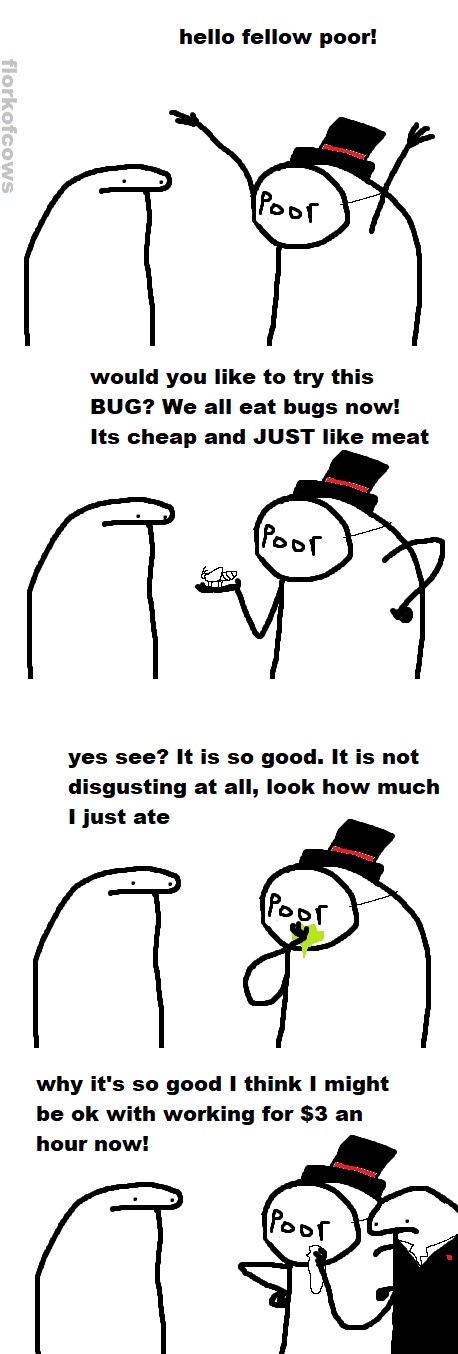this post was submitted on 25 Jul 2023
192 points (100.0% liked)
196
16822 readers
2219 users here now
Be sure to follow the rule before you head out.
Rule: You must post before you leave.
founded 2 years ago
MODERATORS
you are viewing a single comment's thread
view the rest of the comments
view the rest of the comments

At first I thought you were being completely serious, but then I realized that you were being sarcastic after you told me, good thing you did! Anyway, lobsters were eaten because there was nothing else. Making them into a luxury dish is a modern affectation. That's not an actual counterargument to the real point here, but it needed to be said.
My reason is the only reason that actually exists when it comes to the value of social constructs: consensus. Most people find eating vermin to be disgusting for some reason, and they avoid doing so if it doesn't increase their likelihood of starving to death. Which is why you find this aversion to be less prevalent in cultures where famine and starvation exist right now and/or in living memory—and thanks to colonialism, there are a lot of deadly famines in living memory in the third world. I agree that social constructs don't have any intrinsic value, but what difference does it make? Social constructs have the value people place on them, and that value can be imported from other places. Eating bugs is, to most people, disgusting. Like all value statements, this should be understood within its context as being a statement of arbitrary value that is supported by the consensus of a large plurality of people (though this one has majority support). Asking for quantification of it like "why is this a right thing to believe?" is just asking "why do we value what we value instead of valuing something else?", to which the only actual answer that matters is "because it had to be something, and we got this". But as I said, values get imported from elsewhere, like trauma or instinct, such as how European culture developed certain values around hygiene after and in response to the plagues. In my opinion it's reasonable to assume that human beings are instinctively averse to writhing masses of disgusting vermin that are usually found in places like fetid bogs and putrid rotting corpses, and that we are far less averse to things that resemble our ancestral natural prey, like deer and geese.
Also, the idea of the comic as I interpreted it is that the upper class thinks pandering will trick poor people into enjoying eating bugs while they themselves continue to eat meat, which has a meta-point to it told through subtext, like all jokes do: that capitalists value having what other people don't have, that they think the "poors" can be tricked out of it like simpletons, and that they think humiliating the poor and exploiting them in their humiliation is a virtue as long as it's profitable. I would have explained this to the other guy arguing with me, but he gallantly resists being reasoned with and seems much happier nailing himself to the cross.